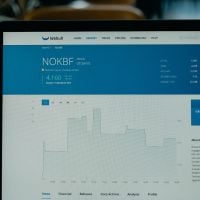Deadline: 31-Dec-2024
Submissions are now open for the Critical Minerals Infrastructure Fund (CMIF) to support Indigenous engagement, capacity building and knowledge gathering and sharing.
The Critical Minerals Infrastructure Fund (CMIF) supports the development and deployment of clean energy and transportation infrastructure that will enable the development and expansion of critical minerals projects in Canada. Indigenous engagement is a crucial part of this infrastructure and mining development, especially given that many proposed projects would take place on traditional Indigenous territories and treaty lands. The CMIF Indigenous Grants fund Indigenous engagement, capacity building and knowledge gathering and sharing activities related to clean energy and transportation projects that would enable critical minerals development.
Funding Information
- This first national call for proposals will provide up to $3.5 million in grant funding to eligible initiatives.
- The maximum funding available per initiative ranges from $50,000 to $150,000, depending on the type of applicant organization and its location.
- Representative Organization
- Baseline funding maximums: $100,000
- Northern or remote funding maximums: $150,000
- Other Indigenous entities
- Baseline funding maximums: $50,000
- Northern or remote funding maximums: $75,000
Eligible Activities
- Initiatives that are eligible under the CMIF Indigenous Grants must include engagement, capacity building, and knowledge gathering and sharing activities related to a clean energy and/or transportation infrastructure project that enables the development and expansion of critical minerals production in Canada (i.e., enabling mining activities, not including processing or manufacturing):
- engagement activities may include meetings and consultations about one or more eligible infrastructure projects linked to critical minerals development. For example, applicants may receive funding to enable their engagement (in person or virtual) with government and industry, as well as other rights holders, stakeholders and partners regarding the clean energy and/or transportation infrastructure projects.
- capacity building activities may include securing or improving the organization’s skills, knowledge and tools to enable their participation in discussions about one or more clean energy and/or transportation infrastructure projects linked to critical minerals development.
- knowledge gathering and sharing activities may include the collection and distribution of Indigenous and/or Western knowledge for purposes of supporting Indigenous participation in one or more eligible infrastructure projects linked to critical minerals development. The activities may be targeted (e.g., gathering traditional knowledge to inform a mine access road feasibility study), or they may be broad (e.g., publishing a community-led report about the potential impacts and benefits of a wind infrastructure that is proposed to power a nearby mine).
- Clean energy or transportation infrastructure that enables the development and expansion of Canada’s critical minerals could either be in the planning stages (for example, in the process of obtaining permits or conducting impact or environmental assessments) or could already be underway. Eligible infrastructure projects may or may not proceed to completion. These projects may also qualify for CMIF contribution funding.
Eligibility Criteria
- Applicants who are eligible under the CMIF Indigenous Grants must be either:
- an Indigenous organization (for example, Indigenous community, Indigenous government, tribal council, national or regional Indigenous organization, or an Indigenous for-profit or not-for-profit organization)
- a non-Indigenous organization that is working with or on behalf of an Indigenous partner (for example, academic or research institutions, not-for-profit groups, and provincial, territorial or municipal governments and their departments and agencies)
- Non-Indigenous organizations will be asked to include a letter of endorsement signed by the leadership of the Indigenous partner organization, confirming they are working with or on behalf of that Indigenous partner.
For more information, visit Government of Canada.









































